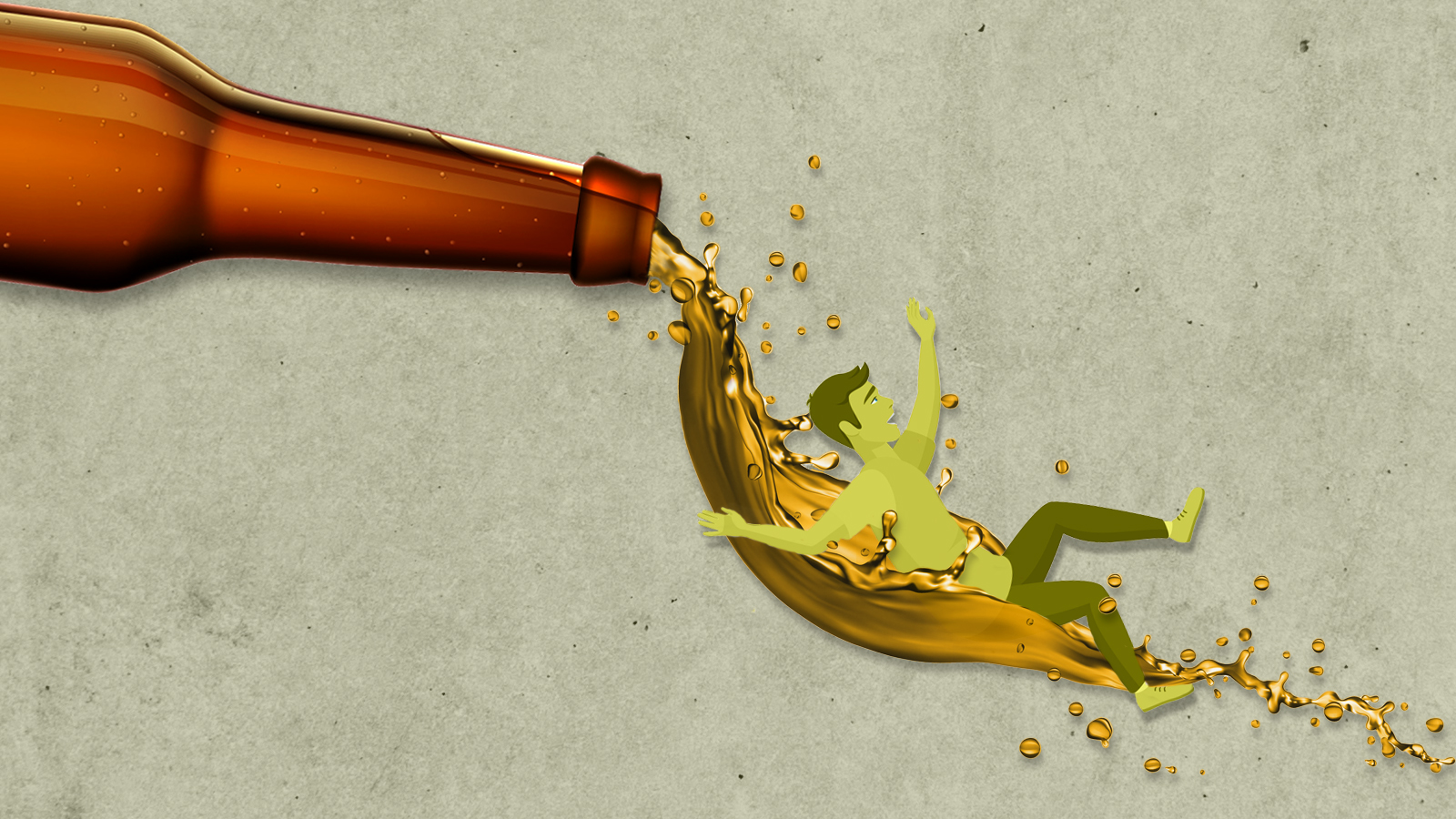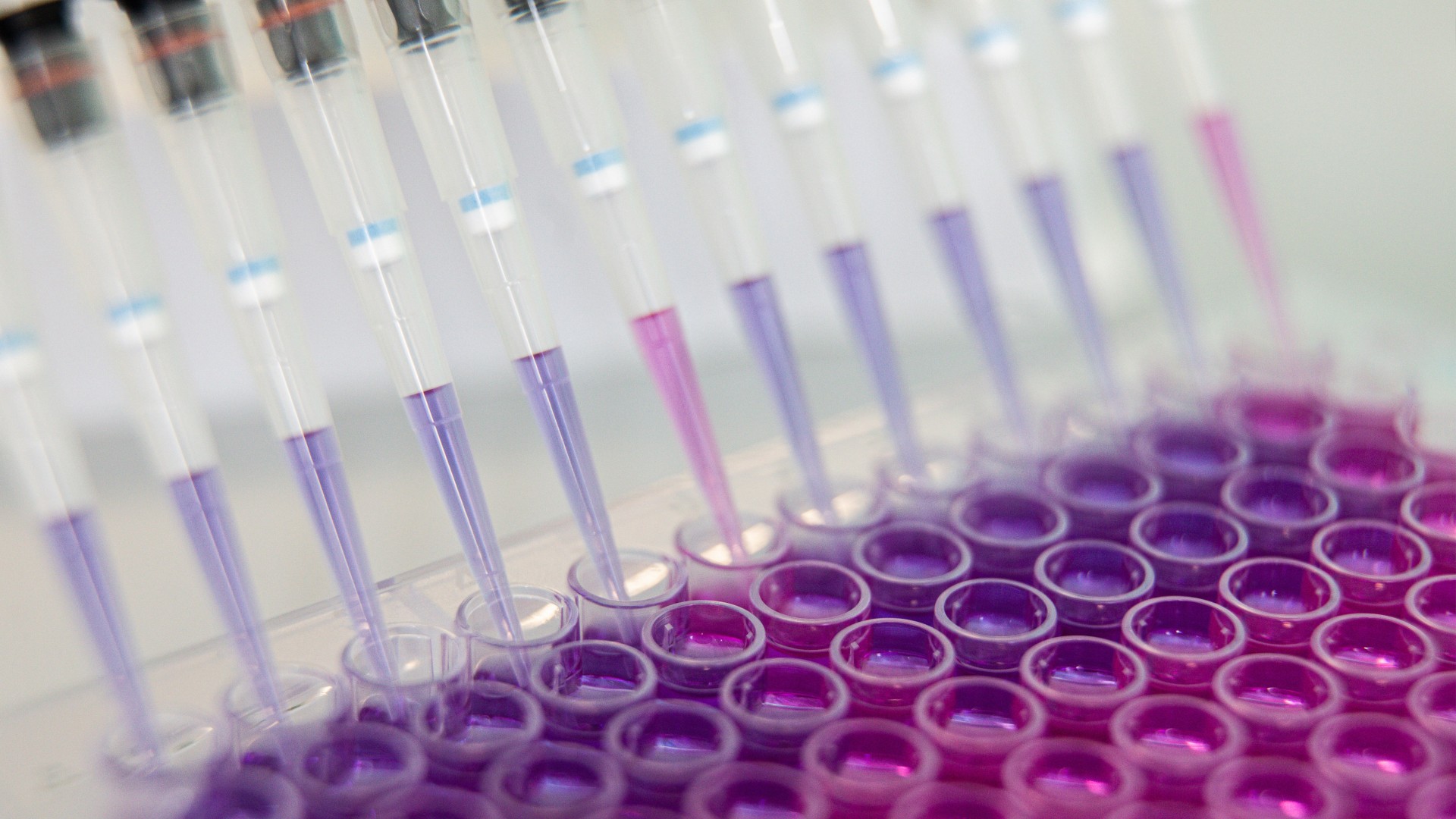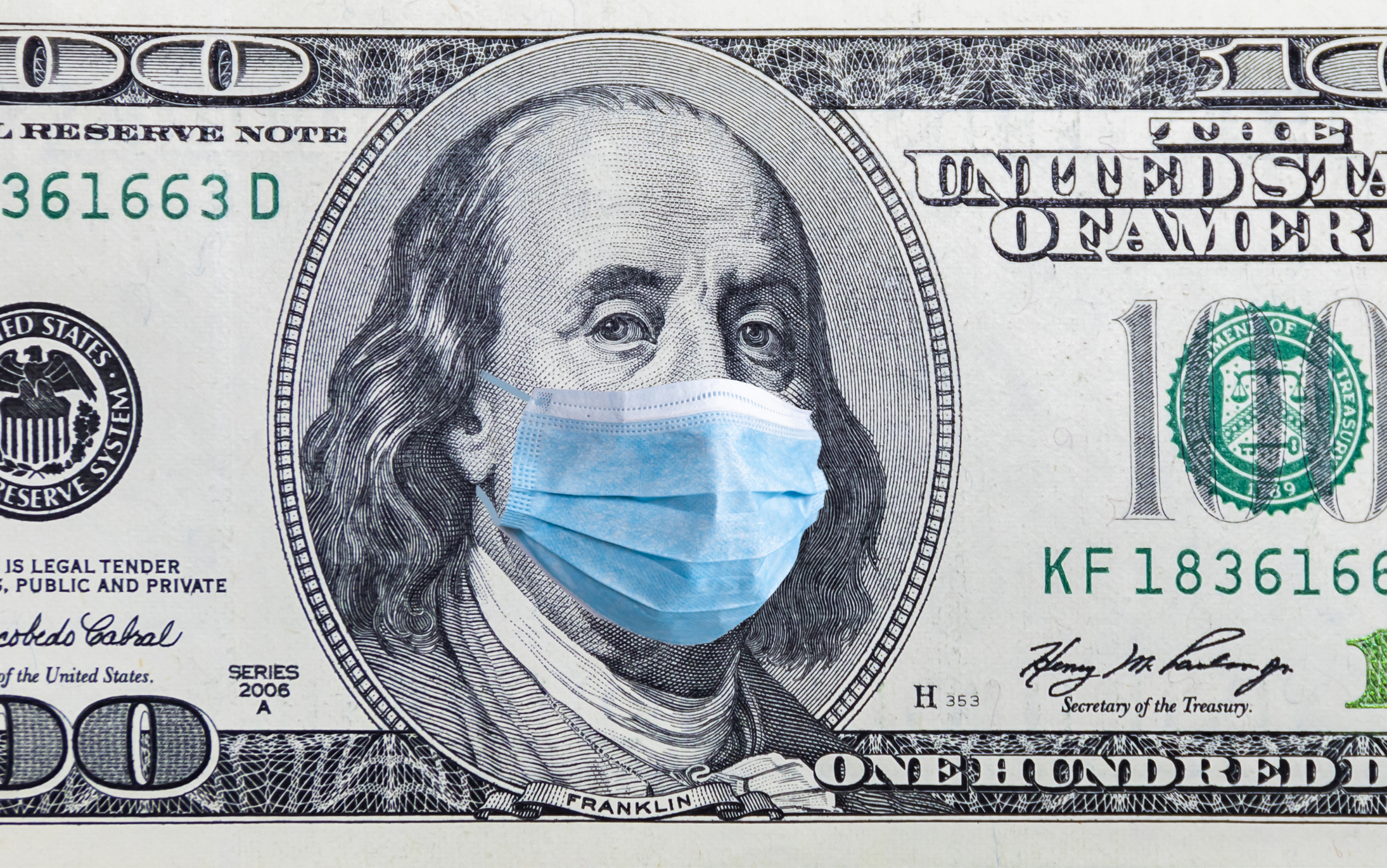The big debate about alcohol
How many drinks is too many drinks? It's complicated.


A free daily email with the biggest news stories of the day – and the best features from TheWeek.com
You are now subscribed
Your newsletter sign-up was successful
To drink or not to drink, that is ... actually not the question most healthy adults should be asking. There is, after all, general agreement that binge drinking and heavy drinking are bad for your health and life more generally. And few alcohol experts argue that abstaining from alcohol is bad for you. But there are very mixed messages, based on imperfect studies, about the health risks — or benefits — of moderate drinking. Public health guidance is veering toward temperance, but with some important caveats. So is it better to tipple or teetotal? Here's what you should know.
What is 'moderate' drinking? And binge drinking?
Moderate drinking can mean anything from one to four drinks a day — a drink, in this case, being a 5-ounce glass of wine (12 percent alcohol by volume), a 12-ounce serving of beer (5 percent ABV, low for craft brews), 8 ounces of 7 percent ABV brew, or 1.5 ounces of hard liquor (40 percent ABV). The Centers for Disease Control and Prevention's (CDC) U.S. Dietary Guidelines advise no more than one drink a day for women and two drinks a day for men.
Binge drinking, as defined by the National Institute on Alcohol Abuse and Alcoholism (NIAAA), is four or more drinks in a two-hour period for women and five or more drinks in two hours for men. Heavy drinking is eight or more drinks a week for women and 15 or more drinks a week for men.
The Week
Escape your echo chamber. Get the facts behind the news, plus analysis from multiple perspectives.

Sign up for The Week's Free Newsletters
From our morning news briefing to a weekly Good News Newsletter, get the best of The Week delivered directly to your inbox.
From our morning news briefing to a weekly Good News Newsletter, get the best of The Week delivered directly to your inbox.
To get the observed rewards of moderate alcohol consumption, "drinking 10 drinks Friday and Saturday nights does not convey the benefits of two or three drinks daily, even though your weekly totals would be the same," Stanton Peele, an addiction/public health specialist, cautioned at Pacific Standard. "Frequent, heavy binge drinking is unhealthy." If you have a history of alcoholism, one drink may be too many, and those with an alcoholic liver disease — alcoholic fatty liver, hepatitis, or cirrhosis — risk death when they drink.
Is it safe to drink any alcohol?
"Sorry to be a buzz-kill, but that nightly glass or two of wine is not improving your health," Dana G. Smith writes at The New York Times. Decades of research "indicated that moderate alcohol consumption has protective health benefits," the CDC says, but "recent studies show this may not be true." The Global Burden of Diseases study, a sweeping global study published in 2018, suggested that no alcohol is good alcohol.
The research looked at the effects of alcohol use in 195 countries from 1990 to 2016, analyzing disease risks but also driving accidents, self-harm, and other factors in alcohol-related deaths. The possible heart benefits of moderate drinking were assessed to be outweighed by cancer and other diseases. "Our results show that the safest level of drinking is none," the report said. "This level is in conflict with most health guidelines, which espouse health benefits associated with consuming up to two drinks per day."
Some countries took note. New guidelines in Canada, unveiled by the Canadian Centre on Substance Use and Addiction (CCSA) in January, advise no more than two drinks a week, and less would be better. "The main message from this new guidance is that any amount of alcohol is not good for your health," Erin Hobin, a senior scientist with Public Health Ontario and a member of the expert panel that developed the guidelines, tells BBC News. "And if you drink, less is better."
A free daily email with the biggest news stories of the day – and the best features from TheWeek.com
Scientists now think alcohol damages your DNA through the production of acetaldehyde, "a chemical that is toxic to cells," Smith writes in the Times. "Recent research has found that even low levels of drinking slightly increase the risk of high blood pressure and heart disease," and alcohol is known to be a direct cause of seven different cancers, including breast cancer and colorectal cancer.
Even so, not everyone agrees that this means alcohol should be avoided entirely. "This type of research often marginalizes other considerations of health and wellbeing from alcohol," argues Dan Malleck, a professor of health sciences at Canada's Brock University. "The research they're using also ignores the enjoyment and pleasure and stress relief and collegiality associated with alcohol. ... We aren't just machines with inputs and output of chemicals or nutrition. We actually exist in a social space. And that has a significant impact on our health."
"Given the pleasure presumably associated with moderate drinking, claiming there is no 'safe' level does not seem an argument for abstention," David Spiegelhalter, Winton Professor for the Public Understanding of Risk at the University of Cambridge, told BBC News. "There is no safe level of driving, but the government does not recommend that people avoid driving. Come to think of it, there is no safe level of living, but nobody would recommend abstention."
Is it safe not to drink?
The CDC recommends against taking up drinking, and says that if you must consume alcohol, "drinking less is better for health than drinking more." But some studies suggest "moderate drinkers live longer than non-drinkers and heavy drinkers," the Bowles Center for Alcohol Studies at the University of North Carolina at Chapel Hill notes.
There are hundreds of such studies, and they suggest that "the more you drink — up to two drinks a day for woman, and four for men — the less likely you are to die," Peele wrote in Pacific Standard back in 2014. Bringing this up "draws louder protests ... Yet that's exactly what the evidence tells us."
In fact, Peele added, there is "irrefutable" evidence that abstaining from drinking entirely is linked to health detriments like heart disease and premature death. Not everyone should drink, he said, but this is "one piece of information you should have on which to base your decision-making — not something to be squirreled away by public health advocates for their own delectation (for the record, I can't think of a public health professional I have known who doesn't drink)."
For its part, the CDC refutes the suggestion that moderate drinking is good for you because "it's impossible" to know whether any perceived health benefits are due to the alcohol itself, lifestyle behaviors, or genetics. The Bowles Center for Alcohol Studies at the University of North Carolina at Chapel Hill also says the reasons behind this correlation "are not clear."
Is wine better than beer or liquor?
"In 1991, the CBS news program 60 Minutes ran a story called 'The French Paradox' which suggested that drinking alcohol, or at least red wine, reduced the risk of heart disease," UNC's Bowles Center notes. That helped spread the belief that wine was healthier than other types of alcohol. "A glass of red wine a day might have some benefits," University of Toronto psychology professor Taryn Grieder told The Guardian. "But not beer, not a shot of hard alcohol. I think people took this idea of alcohol possibly having health benefits and really ran with it."
But actually, "what you drink (beer or wine) doesn't seem to be nearly as important as how you drink," Harvard's public health school reports. In terms of health benefits, "past research suggested that alcohol raises HDL, the 'good' cholesterol, and that resveratrol, an antioxidant found in grapes (and red wine), has heart-protective properties," Smith writes at the Times.
"Don't get me started on resveratrol, a supplement based on an antioxidant found in the skin of red grapes which, in early studies done in test tubes and with animals, was proposed to account for the heart-healthy benefits of wine," Peele grouses. "It was simply a way to avoid recognizing that alcohol is good for you by claiming instead that alcohol's benefits are due to some other ingredient." Research at Johns Hopkins eventually confirmed that "resveratrol has no significant impact on lifespan or heart disease," he wrote. In other words, "it was never red wine to start with, but beverage alcohol."
How can you practice moderate drinking?
Heavy drinking shot up during the COVID-19 pandemic — as did alcohol-linked liver disease, especially in young adults 25 to 34, and more in women than men — "but many people have found novel ways to rein in their drinking," Anahad O'Connor writes at The New York Times. Some people are using drinks-tracking apps while others have turned to counseling or loved ones for accountability.
You can make a weekly drinking plan with days you can drink and amounts to consume, or you can "set up rules to slow your drinking," like drinking a glass of water between each alcoholic beverage or limiting yourself to a drink an hour, O'Connor suggests. "Some people drink more out of habit than an actual desire for alcohol. Try substituting sparkling water or another beverage for your usual drink," like tea or sparkling water.
"Mocktails and other nonalcoholic drinks are surging in popularity in the United States," too, The Washington Post reports, and "two studies on households in Spain and the United Kingdom found the introduction of no-and-low-alcohol alternatives led to consumers drinking a little less alcohol." But only a little. "Overall drinking was reduced. However, it was not reduced drastically," said Jürgen Rehm at the Centre for Addiction and Mental Health in Toronto.
So, should you be a tippler or a teetotaler?
Humans have been arguing about the "merits and demerits" of alcohol consumption "throughout the 10,000 or so years" that they've been drinking fermented beverages, Harvard's public health school recounts. How safe — or dangerous — alcohol is comes down to dosage. "Moderate drinking seems to be good for the heart and circulatory system, and probably protects against type 2 diabetes and gallstones. Heavy drinking is a major cause of preventable death."
To make things more complicated, "the benefits and risks of moderate drinking change over a lifetime," the Harvard team reports. "In general, risks exceed benefits until middle age, when cardiovascular disease begins to account for an increasingly large share of the burden of disease and death," but "given the complexity of alcohol's effects on the body and the complexity of the people who drink it, blanket recommendations about alcohol are out of the question."
"Drink less, live longer," Dr. Tim Naimi, director of the University of Victoria's Canadian Institute for Substance Use Research, tells the Times. "That's basically what it boils down to."
Drink to your health — or not! — as you see fit. Knowing is half the battle.
Peter has worked as a news and culture writer and editor at The Week since the site's launch in 2008. He covers politics, world affairs, religion and cultural currents. His journalism career began as a copy editor at a financial newswire and has included editorial positions at The New York Times Magazine, Facts on File, and Oregon State University.
-
 The problem with diagnosing profound autism
The problem with diagnosing profound autismThe Explainer Experts are reconsidering the idea of autism as a spectrum, which could impact diagnoses and policy making for the condition
-
 What to know before filing your own taxes for the first time
What to know before filing your own taxes for the first timethe explainer Tackle this financial milestone with confidence
-
 The biggest box office flops of the 21st century
The biggest box office flops of the 21st centuryin depth Unnecessary remakes and turgid, expensive CGI-fests highlight this list of these most notorious box-office losers
-
 Gender bias in medical research: how women are still overlooked
Gender bias in medical research: how women are still overlookedIn depth Clinical trials have historically been male-centric, but they are leaving the medical community in the dark about women and girls
-
 Black mothers at risk: inside the maternal mortality crisis
Black mothers at risk: inside the maternal mortality crisisIn Depth Childbirth can be deadly
-
 Covid-19: what to know about UK's new Juno and Pirola variants
Covid-19: what to know about UK's new Juno and Pirola variantsin depth Rapidly spreading new JN.1 strain is 'yet another reminder that the pandemic is far from over'
-
 Covid-19 relief fraud by the numbers
Covid-19 relief fraud by the numbersIn Depth How much money has gone missing?
